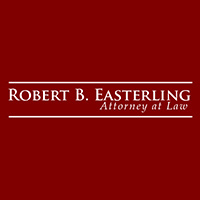Saint Stephens Church Bankruptcy & Debt Lawyer, Virginia
Robert Bruce Easterling
✓ VERIFIEDBankruptcy & Debt, Bankruptcy, Estate, Trusts, Wills & Probate
Robert B. Easterling, Attorney at Law, in Fredericksburg, Virginia, offers legal services, specializing in bankruptcy, wills, trusts and estate planni... (more)
FREE CONSULTATION
CONTACTMichael B. Ballato
Corporate, Business Organization, Credit & Debt, Collection
Status: In Good Standing
FREE CONSULTATION
CONTACTIrwin A. Heller
Estate Planning, Family Law, Business Organization, Bankruptcy
Status: In Good Standing
FREE CONSULTATION
CONTACTFREE CONSULTATION
CONTACTSarah E. Spiers
Business Organization, Dissolution, Foreclosure, Limited Liability Companies
Status: In Good Standing
Darren C. Hickman
Business Successions, Business Organization, Collection, Contract
Status: In Good Standing


